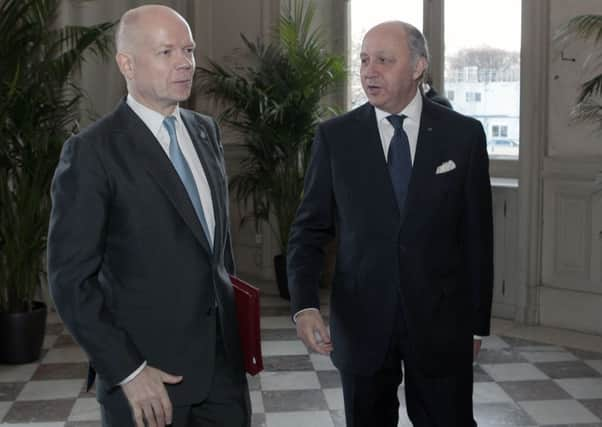Leaders: Hague quick to deny need for war crimes case


There can scarcely be more serious implications than those embedded in the application lodged with the International Criminal Court in The Hague by human rights lawyers PIL and said to represent more than 400 Iraqis. The call for an investigation into the alleged war crimes has been made under Article 15 of the Rome Statute. The dossier refers to “thousands of allegations of mistreatment amounting to war crimes of torture or cruel, inhuman or degrading treatment”, and alleges that some “at the highest levels” were most responsible, including head of the army General Sir Peter Wall and ex-defence secretary Geoff Hoon.
The concern of the UK government over the potential damage to Britain’s reputation may be measured by the speed in which Foreign Secretary William Hague responded yesterday with a firm statement that the allegations are either already under investigation or have been dealt with. Any bid to prosecute British politicians and senior military figures for alleged war crimes in Iraq, he added, should be rejected.
Advertisement
Hide AdAdvertisement
Hide AdEven 11 years on, the political sensitivity of the UK’s involvement makes the prospect of an international criminal court inquiry explosive. The government’s defence is that intensive inquiries have already been held at UK level, that some cases of abuse have been acknowledged and apologies and compensation paid appropriately. An interim report on an extensive inquiry by Sir Peter Gibson was published shortly before Christmas. Mr Hague yesterday rejected the allegations of systematic abuses and the British armed forces “uphold high standards and they are the finest armed forces in the world”.
However, there are two problems here for the government. The first is the increasing importance accorded to human rights in international relations. While such investigations into military operations in theatres of war have been questioned on the grounds that they would under-estimate the intense dangers and pressures under which troops were operating, concern over human rights abuse has grown internationally and the UK itself is signatory to human rights conventions.
The second is that there is a long history of domestic inquiries into the conduct of UK military operations that were subsequently found to have been deficient or incomplete. Any external investigation by an international court would spark concern within the Ministry of Defence, which has presided over numerous errors and shortcomings.
A failure to enforce compliance with the rules of war would be a most serious allegation for the MoD to face. But unless such compliance is enforced robustly from the top down, such problems would only be repeated.
Parliament building ‘fit for demolition’
For years, “sustainable building” has been the cry on politicians’ lips. So the revelation that Scotland’s iconic parliament building at Holyrood has incurred repair and maintenance costs of £11 million over its first ten years and may be fit for demolition, according to one expert, will occasion some sharp questions and soul-searching.
For all its vaunted status as an architectural jewel, it is costing an average of £141,000 in repairs each month. It is draughty in winter and liable to over-heating in summer. Design iconography is one thing, “sick building syndrome” quite another. Architectural writer David Black says maintenance costs will increase to a point where it would make more economic sense to tear it down and redevelop the site.
Its defenders point to the 400,000-plus visitors drawn to it each year; its annual maintenance bill has been kept within budget limits; and ground-breaking buildings do, after all, tend to cost more in maintenance. But this annual bill keeps rising – a fivefold increase to £1.7m since 2004 – and there is every likelihood this impost will continue to rise.
Arguably, the biggest problem is that the building is so encased in cement and surrounded by bomb-proof concrete that its demolition would cost a fortune. Thus, for all the lack of air and sweatiness and its poor situation generally, our legislators are stuck with it. However, it may not be long before MSPs succumb to building-related sickness and ailments and the cry goes up for a building “fit for purpose and one fit to last”. It will have an echo of sorts as it bounces off the brutal lobby ceiling and resonates along those cold concrete walls. Isn’t this where we came in?